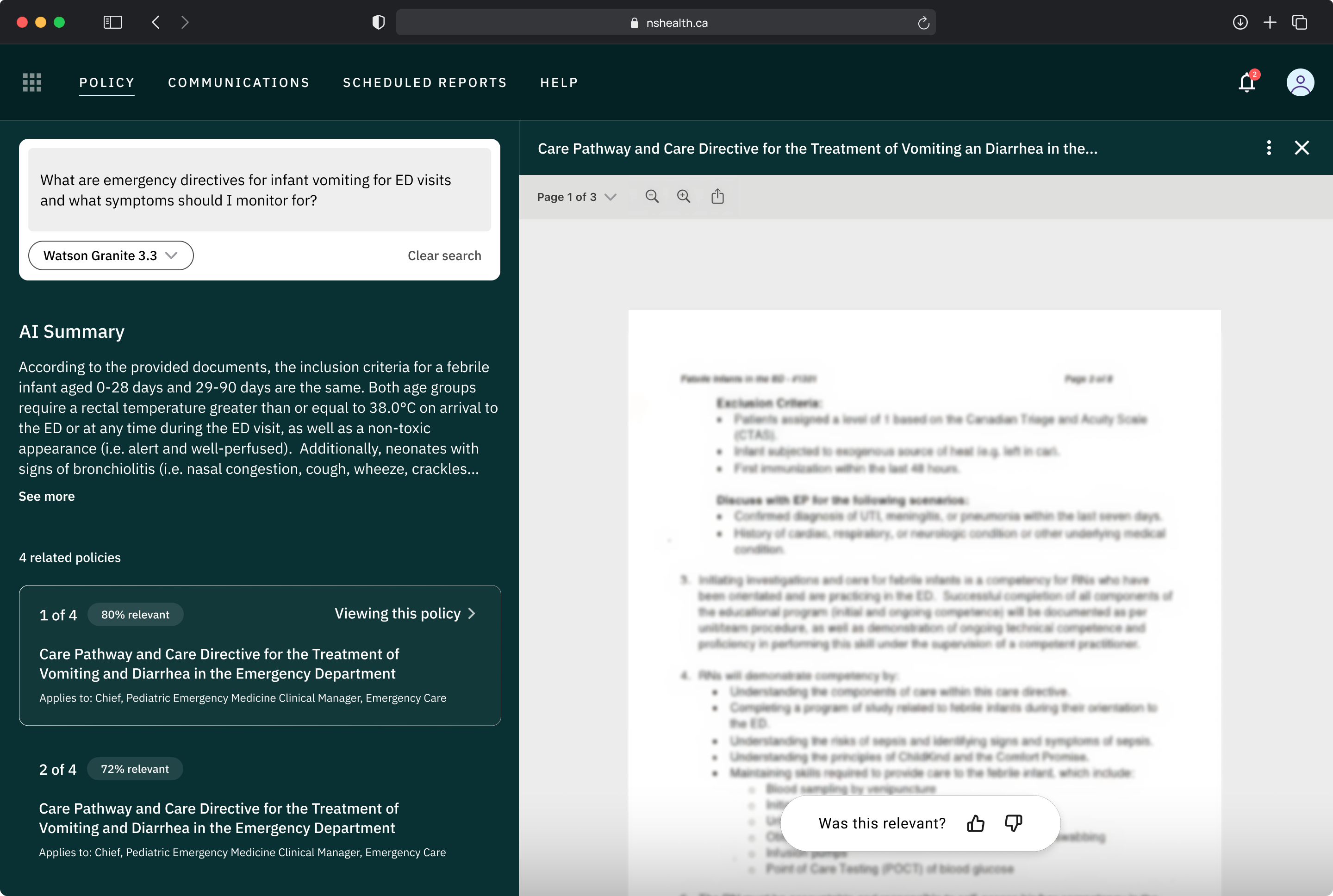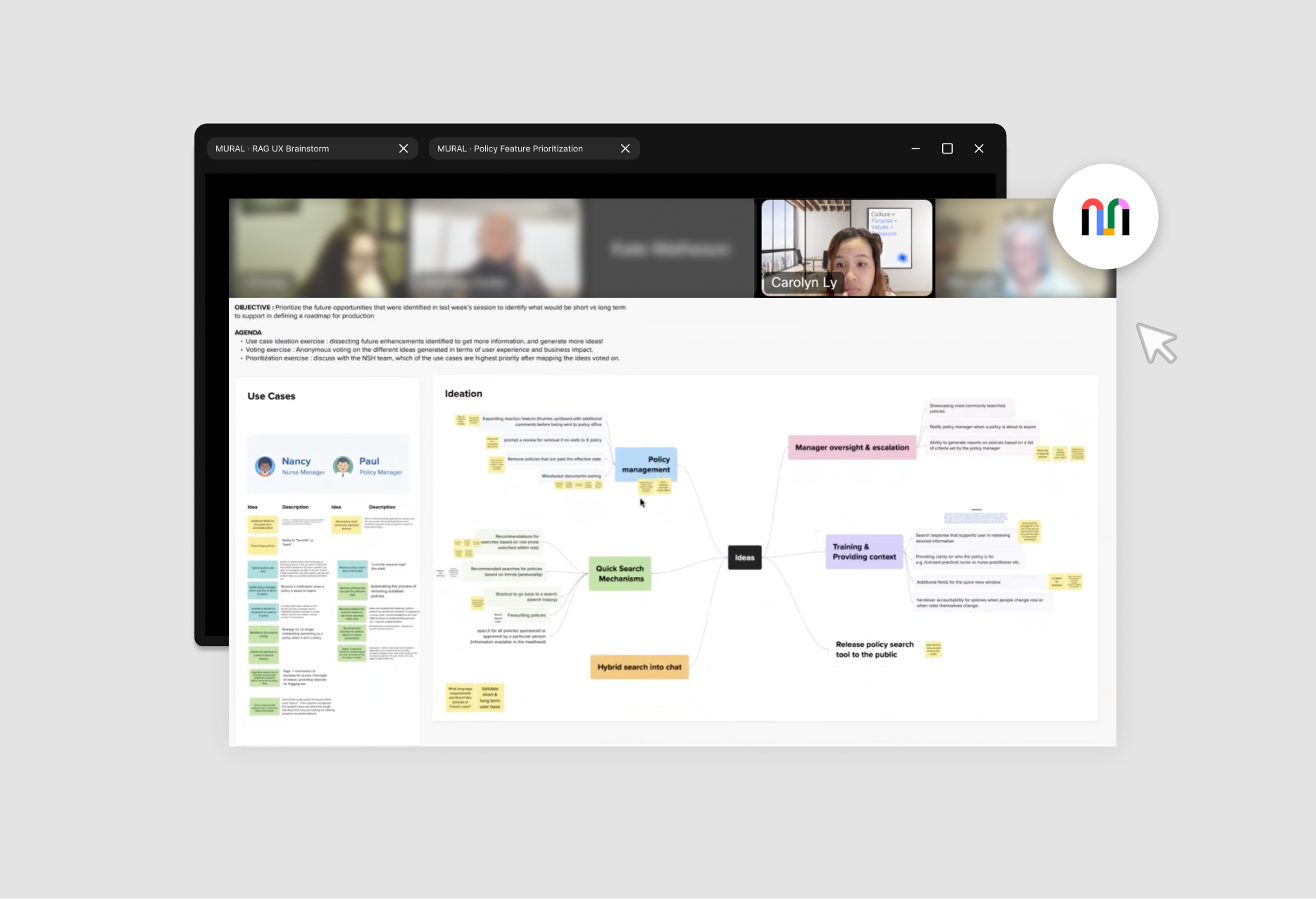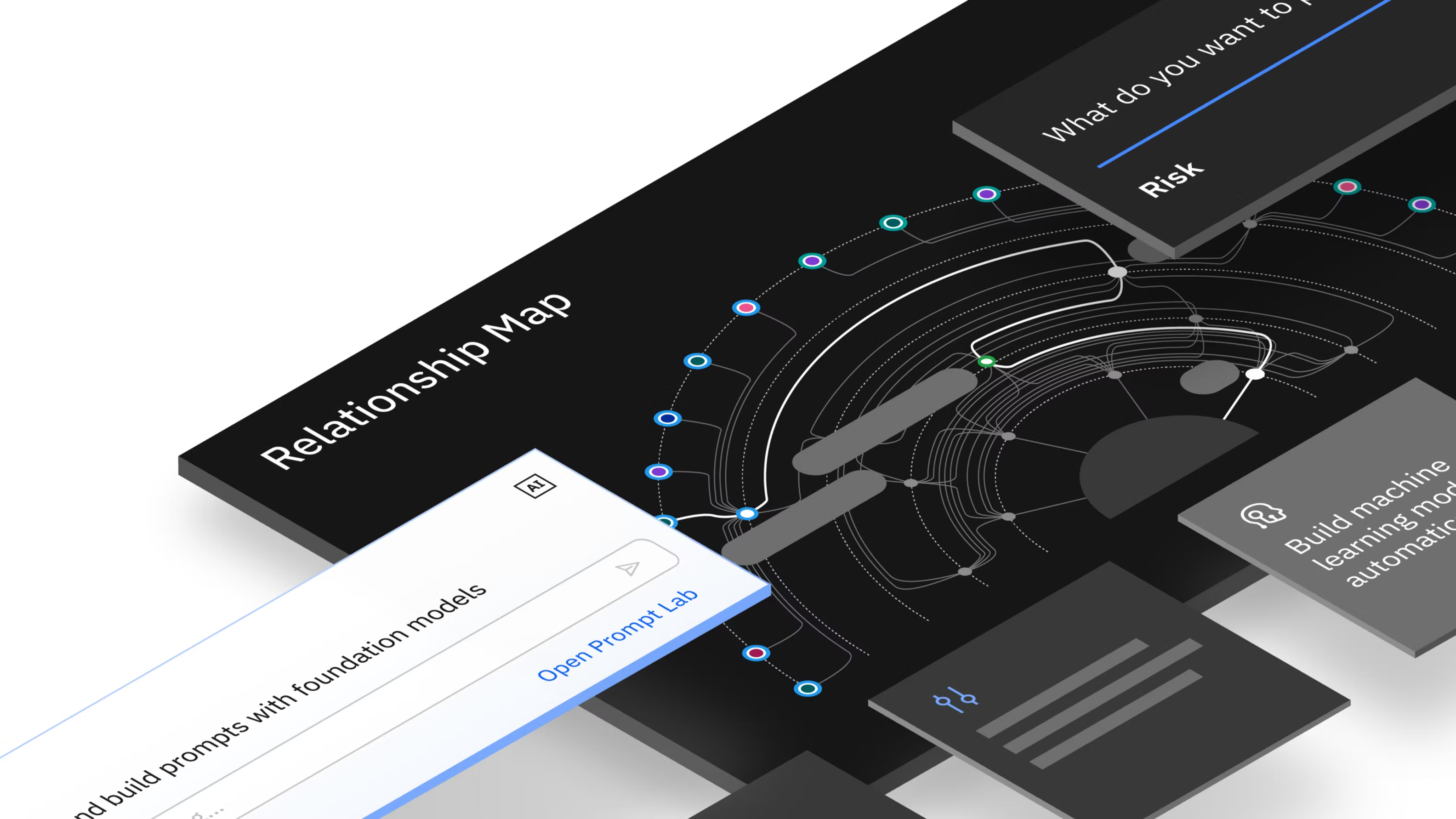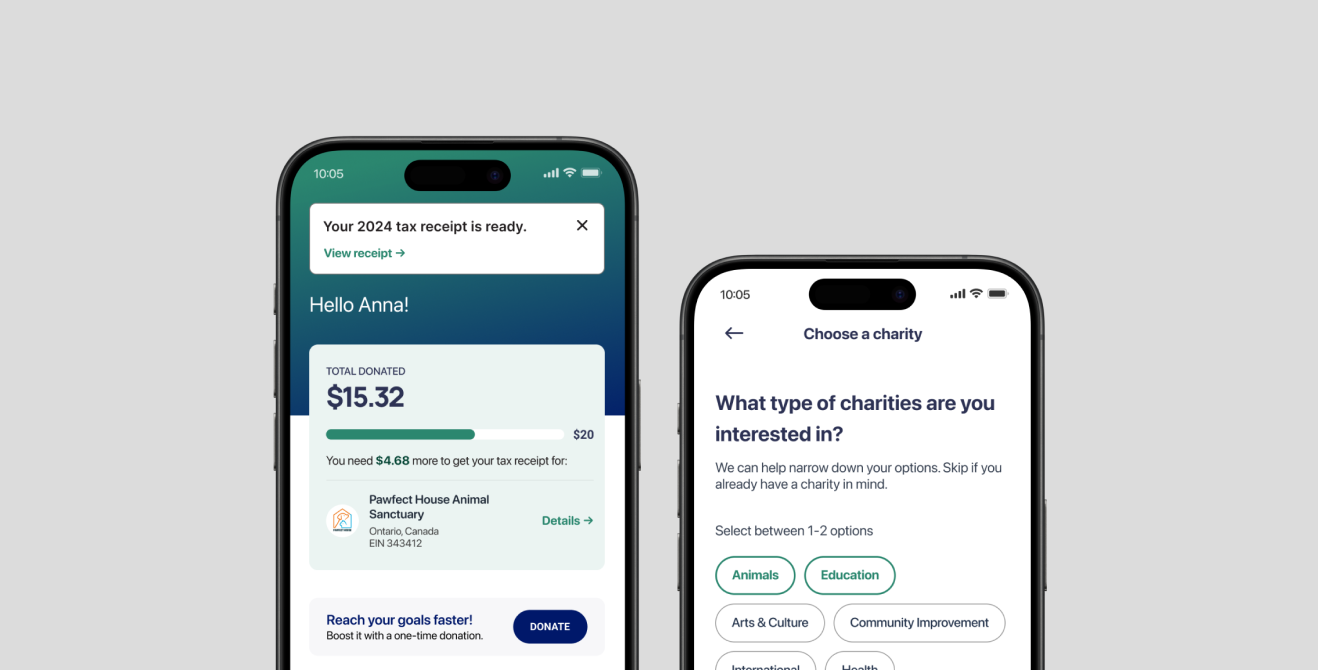This page contains only a high level view of this project. Please get in touch if you would like to learn more.
As part of a provincial modernization initiative, Nova Scotia Health (NSH) sought to enhance their internal operations through generative AI. I collaborated with the Nova Scotia Health Innovation Hub to identify, scope, and prototype two proof-of-concept MVPs using IBM Watsonx AI studio.
Product lead,
AI Developers,
UX/UI Designers,
Data Architects,
Data Scientists,
Project Managers
Incubating innovation using GenAI
Conversations with healthcare professionals at NSH culminated in two MVPs. While the work is confidential, I’m able to share some details:
PR teams faced challenges developing content, such as news releases and speaking notes, from scratch because existing templates lacked nuance and tight deadlines left little time for research or final reviews from leadership.
Nurses needed a way to quickly search and understand existing policies. There were 4,000 internal policies across different webpages and documents—some of which were redundant or outdated.
Below is a sample of one of our MVPs. For more design samples or information, please reach out to me.

Co-designing AI innovation
Central to our approach was cross-functional collaboration between design and technical teams, as well as speaking with NSH front-line hospital staff.
I co-facilitated several Design Thinking activities that helped healthcare workers and stakeholders identify opportunities grounded in staff workflow challenges.
We conducted impact and feasibility assessments with business and technical teams to prioritize design opportunities for each use case to define the MVP scope.
I combined UX design and prompt engineering to prototype generative AI experiences that aligned with user personas and technical constraints.


Continued partnership
Our client was eager to scale the two MVP that IBM demoed, leading to ongoing partnership for more innovation projects.
Some highlights:
The 1st MVP is estimated to save 5.9 hours per communication piece and 83% improved response time
The 2nd MVP is estimated to save 100,000 hours per year, leading to 31% time reduction spent on policy-related tasks
Overall, the MVPs were recognized by Nova Scotia Health as a significant improvement over existing tools—set to replace three legacy systems






